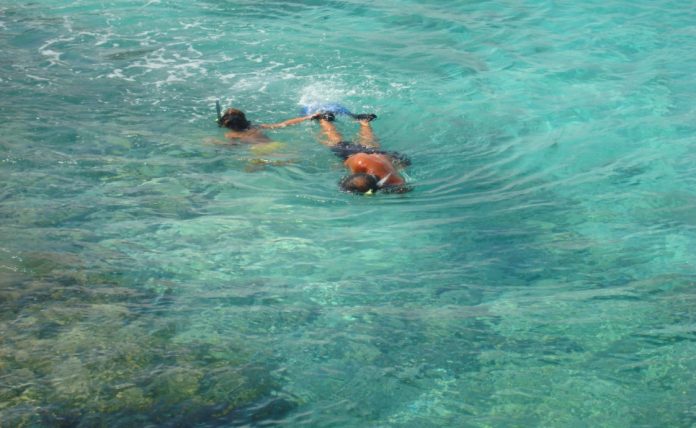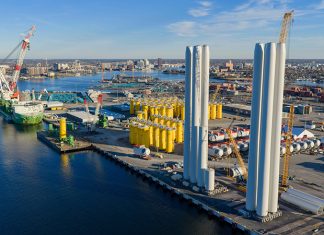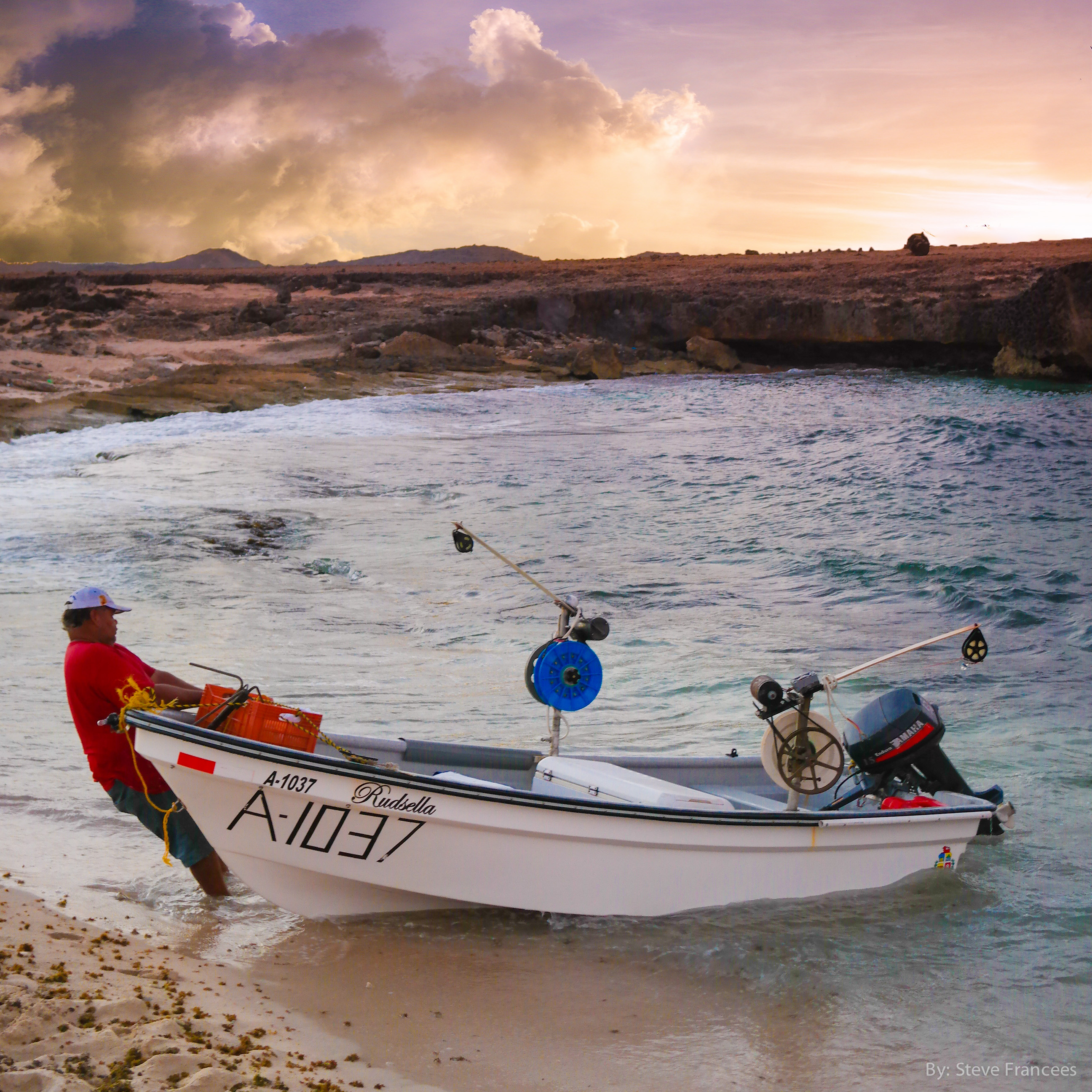Booking a magical glimpse inside Etnia Nativa
Article by Etnia Nativa call us 592 2702 and book your experience!
The island’s unique native gem, Etnia Nativa, blends education and entertainment, offering interactive experiences to a select few. This is your private opportunity to tour a beautiful property made with reused materials collected by its owner, a top columnist and Aruba’s cultural expert. Book your visit and dive deep into the navel of the island.
Through this weekly column, it shares the most interesting and revealing stories about this tiny tourist destination and its thousands of years of pre-history. Spreading how human experience shapes our lives and culture, discover what will enlighten and spice up your stayover. Aid your curiosity; feel like an Aruban native.
This new episode elaborates on the Paleolithic cemetery at Malmok. Historical evidence reveals that Paleolithic nomadic tribes reached our island thousands of years before the arrival of agro-ceramist groups from the Amazon and Orinoco regions.
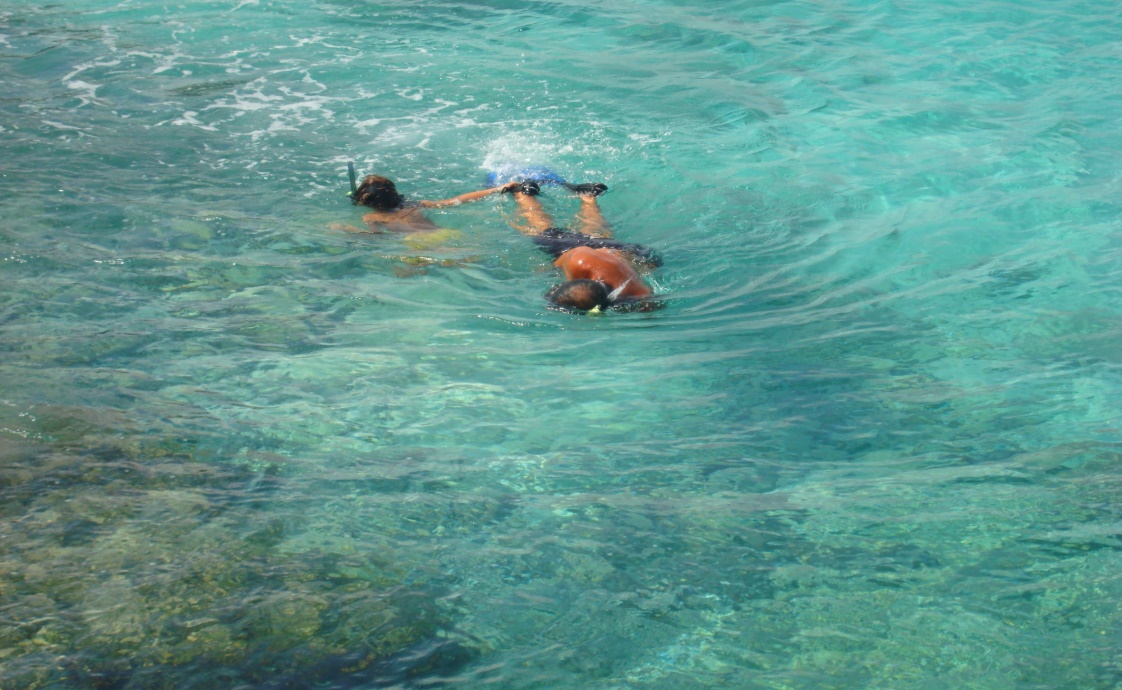
In the process of discovering the island’s landscapes and topography, you will reach the Malmok area, which offers a perfect and relaxing coast line and beaches. During your drive around, you will probably notice and differentiate three basic geological formations: one is a hilly part, the second an undulating part, and a third part consisting of limestone, which embraces these two zones and also forms the coast line.
The picture shows you how calm and peacefully you can swim in the Malmok area. Now for those who want to know more about this beautiful and archaic site. There is a Malmok Paleolithic cemetery. This Stone Age site is situated at a distance of 200 meters south and 300 meters north of the sea, parallel to the former Salina, or salt lake. The site shares its sandy subsoil with the salt lake. This limestone is part of the Lower Terrace formation, formed during a period of rising sea level. Most commonly forms in clear, warm, shallow marine waters. It is usually an organic sedimentary rock that forms from the accumulation of shell, coral, algae, etc.
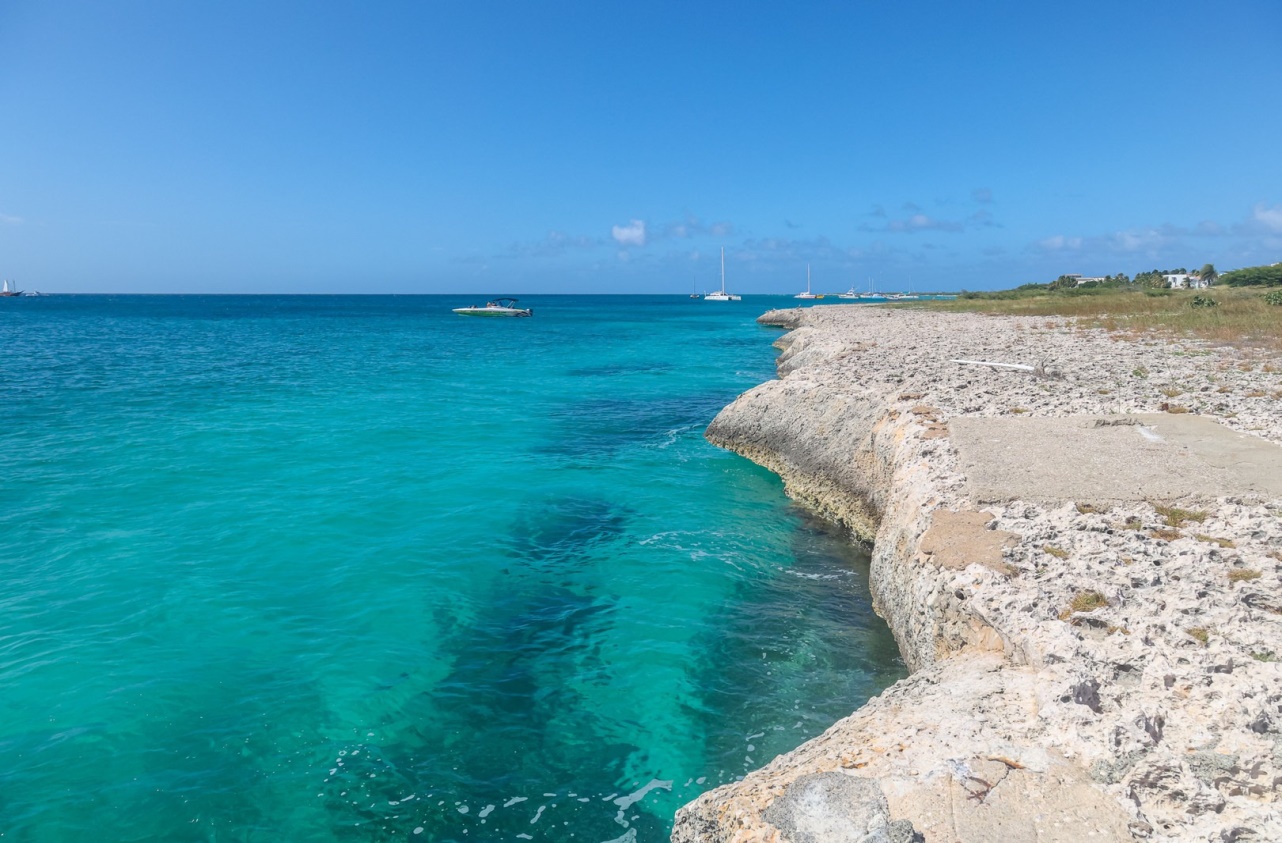
Most of the area in the Malmok site is flat terrain near the Salina. However, some dunes exist in the western part of the site. Rock markings and turtle shell-covered graves were found in the dunes slightly above the plain. This means that the dunes were already present in the period when the burial activities took place in Malmok. The graves in their relation to the present surface suggest that the surface was essentially the same in prehistory as it is today.
The Neolithic agro-ceramic tribes also occupied this abundant and resource-full area, which marine supply must have sustained their peaceful existence. Relatives buried their dead’s in the ground near their settlement, some with special gifts as social status distinctions in their grave. However, others were found with seeds to be planted in the afterlife, while a few had any traceable gifts at all. During rituals, corpses were first buried in the ground; after several months or even years, the bones were excavated and cleaned with meticulous care. These skeletal remains subsequently obtain their permanent resting place in a fairly small urn or vessel. Natives gave great care and devotion to their dead. So you must imagine that people since thousands of years have been very grateful to have enjoyed the pleasure of this paradisiac island for its clear, calm, and generous nature.
If you liked our native stories and are interested in learning the true identity of Aruba, a visit to Etnia Nativa would be a fantastic choice. It has been a trend setter since 1994, as a co-founder of projects such as Arikok National Park, the Archaeological Museum, and the Artisan Foundation, among others. Every week, this newspaper continues to share its valuable knowledge. Don’t miss the opportunity to feel the island’s spirit through learning real stories that are not just remembered; they resonate, they’re felt, and they stir souls. Book your visit: WhatsApp +297 592 2702 etnianativa03@gmail.com


